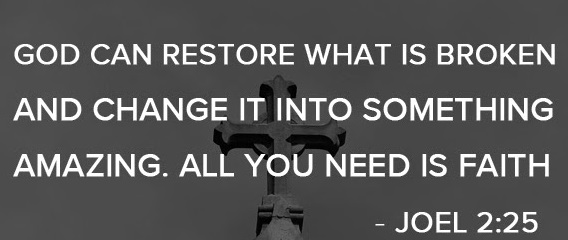Have you ever fallen into the busy trap? Do you never stop working or doing some form of activity? Have you ever said the term, “Rest is for the weak or the dead"? When your heart is saying things like that, your hands won’t stop finding things to do. The busy trap is the self-defeating spiral of nonstop action that feeds on the belief that restfulness is weakness. But rest is not weakness. Rest is an irreducible ingredient for the life that enjoys God.
Have you ever stopped to wonder why, exactly, God would get so upset when Israel forgot to practice the Sabbath? In Ezekiel 20, the prophet is going after Israel for this very thing. There, God says, “I gave them my Sabbaths, as a sign between me and them, that they might know that I am the Lord who sanctifies them” (Ezekiel 20:12). Yet, Israel refused to rest. By forgetting to stop, we forget God. Restlessness, the refusal to lay down our work so we can open our arms to God, means that our busy hands are always full. This robs God of glory; his weighty significance in our lives. Holy time given to a holy God makes us more wholly aware that we are not gods; we neither create nor save ourselves. God does. If we won’t stop to experience the glory of God in rest, we won’t be able to glorify him in work either.
Forgetting God has deadly side effects. If we won’t worship God in rest, then our work will soon metastasize into the worship of some idol; self-importance, control, money, or recognition. That’s exactly what Israel had done. By working without Sabbath rest, the work of their hands became the idols of their hearts. Ezekiel continues, “because they rejected my rules and did not walk in my statutes, and profaned my Sabbaths; for their heart went after their idols” (Ezekiel 20:16). Our hearts are not neutral. Chances are, if we’re not finding our rest in God, we’re wrongly finding it somewhere else. Tell me, if you imagine a regular day of actual rest, does it make you feel anxious? Your fear of stopping might reveal what you’re really worshiping. Because anxiety is very often the evidence of unbelief.
One doesn’t actually need the Bible to see the effects of ceaseless labor. You may achieve some good goals. You may acquire money and career success. Your course may chart steadily upward, for a while. But at what cost: sleeplessness, anxiety, overwork, dissolved relationships, a damaged marriage, distant children, and a neglected God? We work without rest to arrive at some future rest without work. But that’s a bad deal on both sides. Humans weren’t made to work without rest. But even if you burn the midnight oil, scorching the candle on both ends, then what? You arrive at your retirement; a rest with no work. And slowly you begin to realize that too is a nightmare. Humans weren’t made for that either. Jeremiah shows us what such a life looks like when the Lord says, “My people have committed two evils: they have forsaken me, the fountain of living waters, and hewed out cisterns for themselves, broken cisterns that can hold no water” (Jeremiah 2:13). A restless life is like trying to fill a bucket that is constantly leaking. No matter how much we save, spend, exert, or fret, the dripping away of our lives will eventually lead to ruin. Rest returns us to the true fountain and mends the vessels of our lives to carry the water we find there.
If it is true that God is most glorified in us when we are most satisfied in him, and it is true, then it is a sad irony that so many of us Christians refuse to pause long enough to enjoy him. Sure, you can love God in your work (and you should!). But the God and Father of Jesus Christ is not the false god of Pharaoh who demands ceaseless work to gain entry into their paltry heavens. The true God has actually done all the work necessary to invite us to rest in him. You can learn the art of rest, but only if you’ll repent of your restlessness. The end of Ezekiel’s prophecy promises that one day God’s people will no longer forsake their rest. And when they learn to stop, they’ll walk in more health and provision than they had ever known (Ezekiel 44:23–31). This is why Jesus was able to look at his weary people and say, “Come to me, all who labor and are heavy laden, and I will give you rest. Take my yoke upon you, and learn from me, for I am gentle and lowly in heart, and you will find rest for your souls. For my yoke is easy, and my burden is light.” (Matthew 11:28–30)
The restless will only find their rest in him. You will only find your rest in him.


